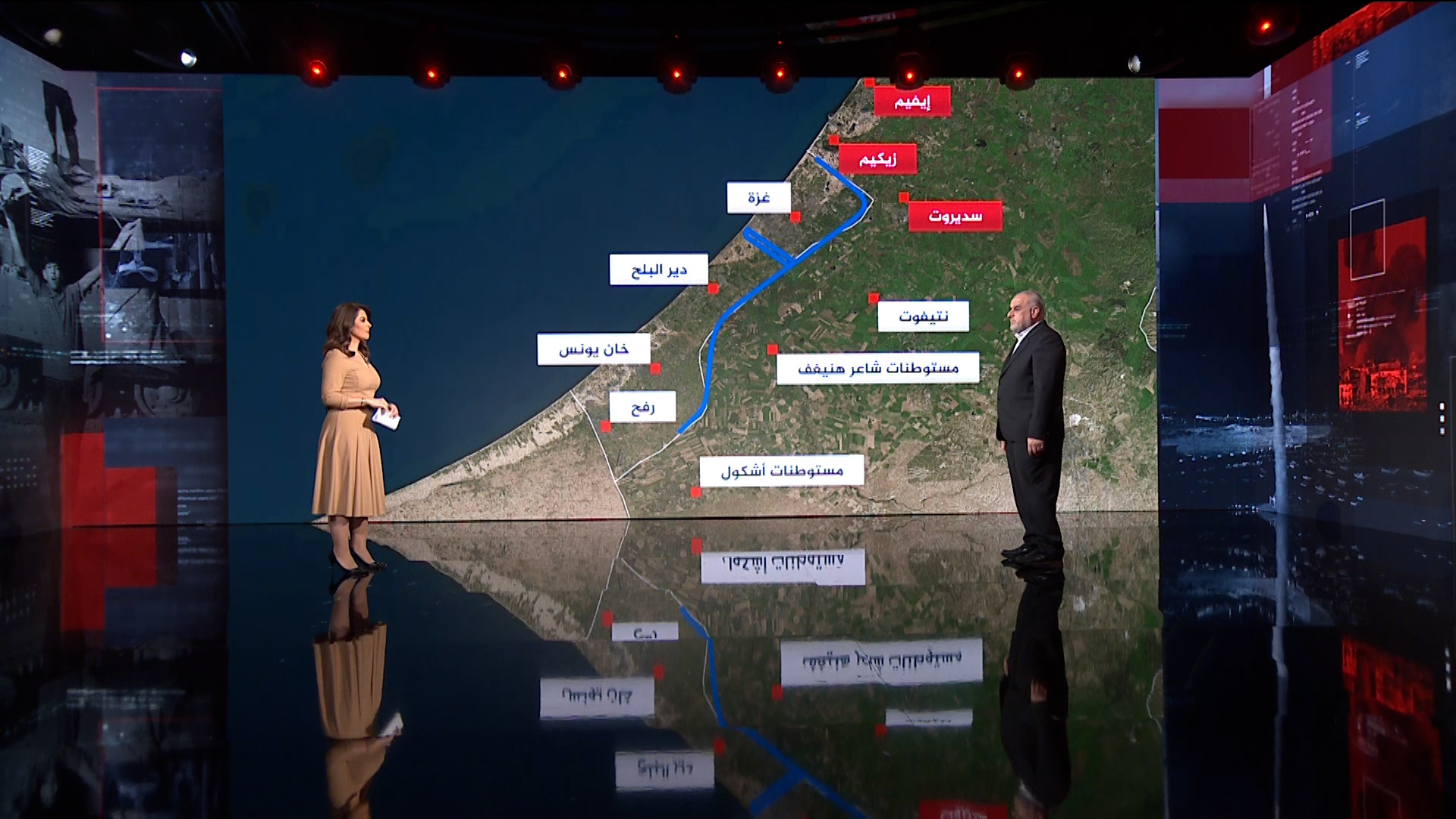play videoplay video
Video duration: 11 minutes 00 seconds 11:00
The military and strategic expert, Colonel Hatem Karim Al-Falahi, said that the Israeli occupation operation in the city of Khan Yunis, south of the Gaza Strip, was based on incorrect Israeli estimates, after it took 4 months instead of 2 months.
Al-Falahi explained - during Al Jazeera's military analysis segment - that it is not possible to give a real time period in the issue of achieving goals in built-up areas, especially since the means that were developed are inconsistent and unable to achieve the goals of the military ground operation.
He pointed out that fighting in open areas is different from fighting inside cities, just as fighting with a regular army is different from fighting with armed groups, which includes private fights and guerrilla warfare.
He stressed that the occupation army faced great complications during its operation in Khan Yunis, and it has a problem in staying inside the cities, and its survival requires military failure, “so it failed to achieve its goals of eliminating the Islamic Resistance Movement (Hamas) and recovering the detained prisoners.”
Al-Falahi acknowledged that the Israeli ground operation weakened the capabilities of the resistance factions, but stressed that they were not eliminated, citing their presence in all areas of the Strip in the north, center and south, and that resistance operations did not cease.
He highlighted some of the contradictions in the Israeli statements, as they say that the army will return in the event of threats, and he asks here: “Why was the withdrawal made after the recent Zinna and Hay al-Amal operations in Khan Yunis?!”
He touched on a number of pressures facing Israel: In addition to Washington's pressure, Tel Aviv is under the threat of the Gaza and West Bank fronts, and it may open the Lebanon front.
He added, "There are Iranian threats to respond to Israel after the bombing of Tehran's consulate in Syria," in addition to the sharp political division within Israel and its impact on Benjamin Netanyahu's government.
Al-Falahi reiterated that the reasons for the occupation’s withdrawal from Khan Yunis were due to its desire to turn it into a potential shelter area in light of the talk about the Battle of Rafah, as well as the desire to obtain rest and restore the combat readiness of the Israeli forces.
He explained that moving to the third phase of the war means less intense and intense operations than the first and second phases, especially since there are no duties for the military sectors that were exhausted under the strikes of the resistance fighters.
Source: Al Jazeera

